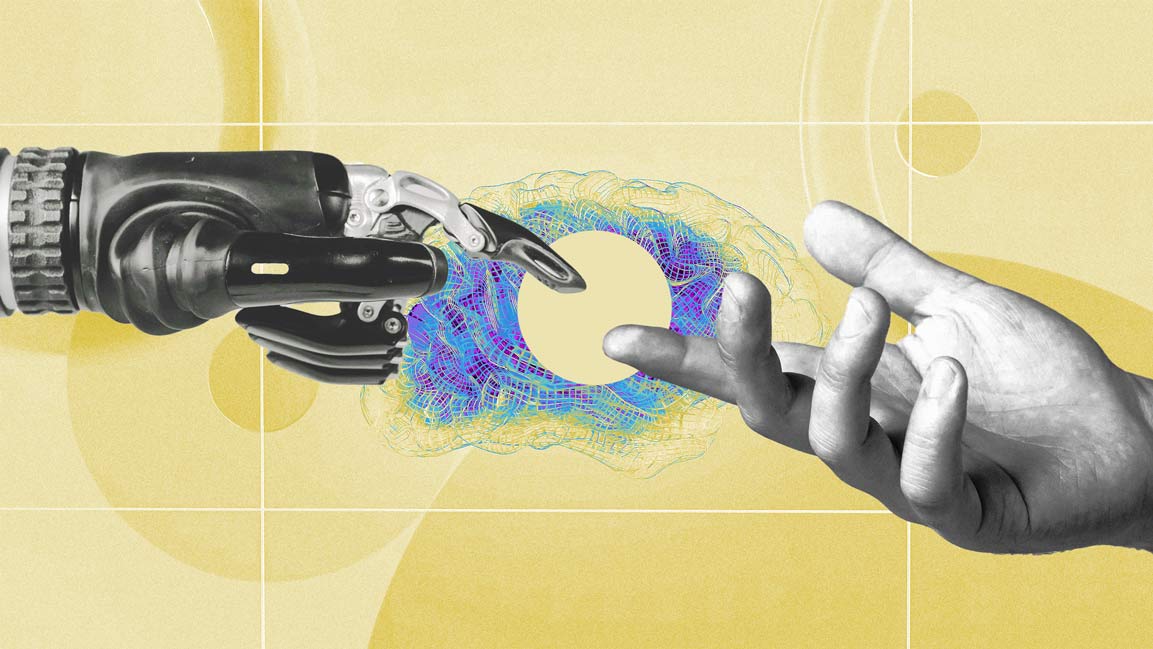How TCS helps clients take aim at real-world problems with AI
TCS is treating AI as infrastructure—capable of quietly reshaping code, content, operations, and client relationships
Topics
News
- Codex Gains Early Traction as OpenAI Pushes Agent-Led Coding
- Supreme Court Raises Red Flags Over Meta, WhatsApp Data Practices
- Musk Merges SpaceX and xAI in Deal Valued at $1.25 Trillion
- Firefox Moves to Make AI Optional for Users
- OpenAI, Snowflake in $200 Million Deal to Embed AI in Enterprise Data
- Oracle to Raise Up to $50 Billion in 2026 to Scale Cloud Capacity

Tata Consultancy Services Ltd (TCS), India’s largest information technology (IT) services firm and the first off the block with its quarterly results, has noted “increasing traction in AI-adoption.”
TCS, which released its fourth-quarter earnings on Thursday, said in its disclosure to the exchanges that clients are continuing to scale up their investments in artificial intelligence (AI) and generative AI (genAI).
“Internet of Things and digital engineering, enterprise solutions, and AI-cloud were the top performers among our service offerings. We’re also seeing strong and growing interest in AI adoption,” TCS said, adding that the firm “gained significant traction for our genAI and agentic AI services and solutions across industries and markets.”
“Our expertise in AI and digital innovation, coupled with the unmatched knowledge of customer context and global scale makes us the pillar of support for our customers in this environment of macroeconomic uncertainty,” said K. Krithivasan, the chief executive officer and managing director at TCS, “which crossed $30 billion in annual revenues and achieved a strong order book for the second consecutive quarter.”
Its recent big-ticket deals in the AI space tell the full story and scale of deployment of its services.
From wildfire prevention
In North America, the IT firm said it is helping a large utility company use AI not for customer support or tweaking billing software—but for wildfire prevention.
This is AI working directly with the physical world.
TCS did not specify the name of the client, but said that it is feeding LiDAR scans, satellite images, weather patterns and even vegetation data into AI models to predict wildfires and help prune trees better.
And that’s AI doing real-world problem-solving, not just digital housekeeping. (LiDAR, or Light Detection and Ranging, is a laser-based technology used to scan terrains in 3D.)
To movie script analyzer
Meanwhile, in the media and entertainment space, TCS said it is building a generative AI-powered movie script analyzer for a global OTT platform (again, it didn’t name its client).
The idea is to read scripts, learn from past viewership patterns, and help shape content decisions by improving the storytelling or content mix—turning AI into an unseen but effective and creative partner.
The transition signals a broader theme: AI won’t just automate operations — it will increasingly shape customer experiences in subtle, behind-the-scenes ways.
And its own backyard
Perhaps the most radical is what TCS is doing to its own backyard—using AI to migrate 50 million lines of legacy COBOL code to Java for a global financial major.
Now, that’s AI erasing a decades-old IT services revenue stream.
And TCS is doing it deliberately.
Underneath all this is a growing AI backbone of its own—the WisdomNext™ 2.0 platform—helping with faster onboarding, governance, and plug-and-play industry solutions.
“During FY25, we made great strides in reimagining software engineering through AI. Over a third of our client engagements use AI/genAI for accelerated project outcomes and high quality,” TCS said.
While AI revenues remain a small slice of the pie, clients still demand transparency, security, and proof of value.
But what’s clear is that TCS is treating AI as infrastructure—capable of quietly reshaping code, content, operations, and client relationships.





